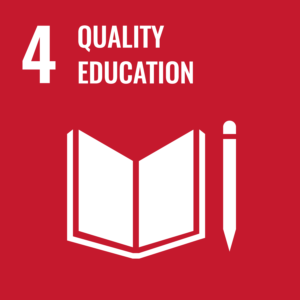Five million Burkinabe children could not go to school for six months throughout the COVID-19 pandemic, according to the United Nations. Schools re-opened in October 2020, but as the COVID-19 situation worsens across the region, students face the threat of closures again.
At least one third of the world’s students cannot access remote learning and this disruption continues, as outlined by UNESCO in advance of International Education Day amid the global pandemic.
Remote learning in Burkina Faso
In response, digital resources for remote learning are a key focus for Projet d’appui aux réformes institutionnelles et techniques pour l’équité – the PARITÉ Project – funded by Global Affairs Canada and implemented through a partnership between Alinea and the Centre for International Studies and Cooperation. This project works with the Burkinabe government to build capacity across the Ministry of Education to support teachers in improving the learning outcomes of students, particularly girls. As part of the Burkinabe government’s response to the global pandemic, PARITÉ provides on-the-job support for ministry employees who train teachers to reach students using digital resources.

UN Sustainable Development Goal 4
“The global pandemic is showing us how challenging online learning can be for children around the world, but this is particularly the case in the poorest countries like Burkina Faso,” said Suzane Louchard, PARITÉ Project Director. Louchard has extensive experience working in West Africa and manages Alinea’s projects and program development across the region where crisis situations, such as conflict, create fragility and instability that exacerbate challenges associated with connecting girls and boys with quality, basic education.
“Our current focus is equipping teachers with the necessary skills to provide instruction online, which starts in the Ministry of Education where we work with employees who train Burkinabe teachers on producing and implementing digital education resources.”
New routes to education for girls in Mali
In neighbouring Mali, schools closed in December and remain shuttered as significant challenges to distance learning systems persist. In addition to new barriers to education brought on by the global pandemic, at least 250,000 people are estimated to be displaced due to conflict, according to the UN Refugee Agency. Défi éducation des filles au Mali – the DÉFI Project – funded by Global Affairs Canada and implemented by Alinea, creates new routes to education in conflict-affected areas with a specific focus on the education needs of internally displaced persons – needs becoming increasingly urgent as conflict continues to ravage the centre and northern parts of the country. ![]()
Alinea manages institutional activities to support the Malian government in responding to these needs while key partners provide expertise at the community level. Through a network of local radio stations, Farm Radio International delivers interactive radio programming to hard-to-reach areas of the region. Catholic Relief Services and their local partners work directly with communities to support education of out-of-school children, especially girls, in conflict-affected areas. This includes professional training using innovative tools and methodologies provided by Éducation internationale.

UN Sustainable Development Goal 5
“Between the global pandemic and growing conflicts, children across Sub-Saharan Africa face significant challenges to accessing quality education services tailored to their needs and circumstances. Keeping girls in school is by far the most difficult issue we face,” said Louchard, who is also the DÉFI Project Director.
“The road to meaningful change to girls’ education outcomes requires close collaboration with multiple stakeholders, including schools, government, parents, communities and local leaders.”
On January 24, Alinea joins the world in marking International Education Day and the 2021 theme, “Recover and Revitalize Education for the COVID-19 Generation.”
